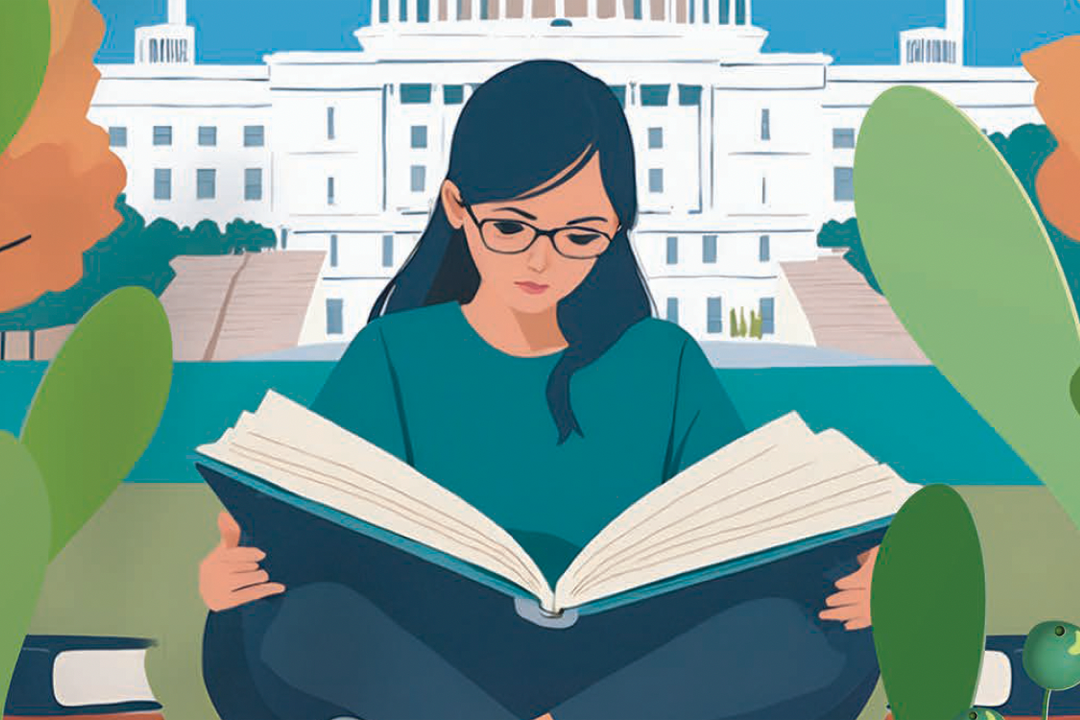By Libby Stanford
FOR OVER 50 YEARS, GW LAW’S ENVIRONMENTAL and Energy Law program has been at the forefront of education and scholarship in the environmental law field. Over the past decade, its influence and impact has grown exponentially — expanding to include energy law and positioning faculty as leading voices in the modern environmental era. Now, the program is shaping the future of environmental law policy, while tackling some of the most pressing issues of our time.
This year, the Environmental and Energy Law program brought in three new faculty members, supported Professors Emily Hammond and Robert Glicksman as they shaped environmental policy, and supervised and supported students in publishing and presenting their scholarship and research around the nation and the world. As the globe grapples with rising sea levels, record hot summers, and habitat destruction, GW Law’s Environmental and Energy Law program is providing the solutions for a brighter future.
New Faculty Members Bring Expertise and Experience
The Environmental and Energy Law program welcomed three new faculty members this year: Sara Bronin, Caroline Cecot, and David Uhlmann. They each bring a wealth of experience and expertise that will continue to advance the excellence and impact of the program now and well into the future.
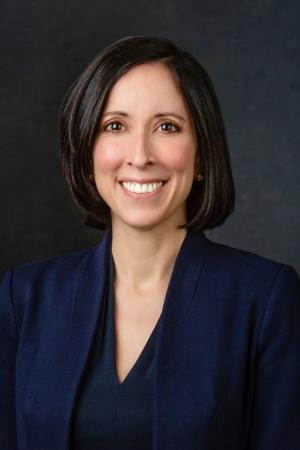
Sara Bronin
SARA BRONIN JOINS THE LAW SCHOOL FROM Cornell University, where she served as a professor of city and regional planning and an associate member of the law school faculty. In 2023-24, she was on leave from her position at Cornell to serve as the Senate-confirmed chair of the U.S. Advisory Council on Historic Preservation, where she focused among other things on developing and implementing the first federal policy statement on climate change and historic preservation. Prior to joining the Cornell faculty, she was the Thomas F. Gallivan Endowed Chair in Real Property Law at the University of Connecticut, and she founded and directed the UConn Center for Energy and Environmental Law.
Bronin brings extensive expertise in property, land use, zoning, historic preservation, and renewable energy law to GW. Her latest book, Key to the City: How Zoning Shapes Our World, argues that zoning laws should be rewritten to improve our economy, access to opportunity, connectedness, and quality of life. She is the author of three other books, two treatises (including the land use volume of the Restatement of Property (Fourth)), and dozens of law review articles, and she founded the National Zoning Atlas, which is digitizing information about zoning conditions in over 33,000 jurisdictions across the country.
Caroline Cecot
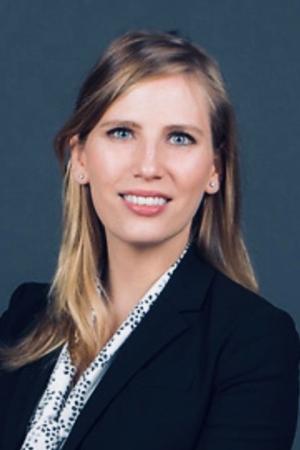
CAROLINE CECOT JOINS GW LAW AS A FULL-TIME faculty member after serving as a visiting associate professor of law at GW for the 2024–25 academic year, during which she taught environmental law, torts, and a seminar on environmental law and economics. Before joining GW Law, she was a professor of law at the Antonin Scalia Law School at George Mason University.
Cecot’s scholarship focuses on environmental regulation, administrative law, and especially the use of cost-benefit analysis in rulemaking. She is the president of the Society for Benefit-Cost Analysis and a co-author of the casebook Environmental Law and Policy, 5th ed. (Foundation Press, 2024). Her work has been honored twice by the Environmental Law Reporter, including one article selected as a top 20 environmental law article of the year and another top 20 article that received Honorable Mention for the best environmental law article of the year.
She was recently appointed as a public member of the Administrative Conference of the United States in recognition of her contributions to administrative law. She also served on the U.S. Environmental Protection Agency’s Science Advisory Board panel reviewing the agency’s guidelines for economic analysis. Earlier in her career, she was a legal fellow at the Institute for Policy Integrity at NYU School of Law and clerked for the Hon. Raymond J. Lohier Jr. of the U.S. Court of Appeals for the Second Circuit.
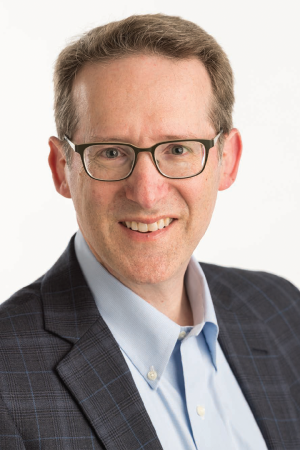
David Uhlmann
DAVID M. UHLMANN WILL BE VISITING GW LAW FOR academic years 2025-26 and 2026-27. An internationally recognized expert on environmental law, he brings more than three decades of leadership experience solving some of the nation’s most prominent and challenging environmental enforcement issues.
From 2023 to 2024, Uhlmann served as the U.S. Environmental Protection Agency’s assistant administrator for enforcement and compliance assurance — the top enforcement official in the United States — under President Joseph R. Biden. From 2022 to 2023, he was deputy assistant administrator and senior advisor to the EPA administrator while awaiting Senate confirmation.
Prior to joining the Biden administration, Uhlmann served from 2007 to 2022 as the Jeffrey F. Liss Professor of Practice and director of the Environmental Law and Policy Program at the University of Michigan Law School, where he was also a distinguished faculty fellow in sustainability. During that time, he was a counselor to the VW Compliance Monitor and Auditor appointed by the Justice Department and EPA after the VW diesel emission cheating scandal.
Earlier in his career, Uhlmann served in various high profile roles at the U.S. Department of Justice, including as chief of the Environmental Crimes Section, where he was the top environmental crimes prosecutor in the country. His office was responsible for the prosecution of environmental and wildlife crimes nationwide, and he chaired the Justice Department’s Environmental Crimes Policy Committee. His work as lead prosecutor in United States v. Elias, a knowing endangerment case that left a 20-year-old worker severely and permanently brain-damaged, is chronicled in The Cyanide Canary.
Uhlmann brings expertise in corporate crime, criminal and civil enforcement of environmental laws, and climate change and sustainability to GW Law.
Faculty Tackle Environmental Issues Head On
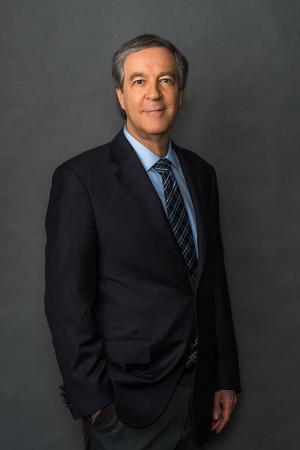
WHILE THE NEW ADDITIONS TO THE ENVIRONMENTAL and Energy Law program’s faculty will advance the impact and prestige of the program, GW Law’s current program faculty have already made their mark on national environmental law and policy. Their efforts are part of GW Law’s mission to make an impact on the law through the leadership of our diverse faculty and staff.
Two professors in particular — Robert Glicksman and Emily Hammond — have dedicated much of their time over the past year to policy efforts in environmental law.
Glicksman, the J. B. and Maurice C. Shapiro Professor of Environmental Law, has sought to influence law and policy in his areas of expertise — administrative law, environmental law, and natural resources law — throughout his career. For 17 years, he served as a member of the board of directors of the Center for Progressive Reform, a non-profit research and advocacy organization that conducts independent scholarly research and policy analysis, and advocates for effective, collective solutions to our most pressing societal challenges.
“Working at GW Law gives me opportunities to provide input into the environmental policymaking process that would be hard to duplicate at other law schools,” Glicksman said. “Because GW Law is located in the nation’s capital, the predominant center of national policymaking, members of the press regard its professors as important sources of information on legal and policy issues in areas such as environmental law.”
During the Biden administration, the Council on Environmental Quality invited Glicksman to participate in its efforts to revise the regulations that implement the National Environmental Policy Act. Most recently, Glicksman submitted comments to the DC Council on a proposed bill to change the standard of judicial review of agency decisions, which resulted in changes to the bill that he recommended.
'Working at GW Law gives me opportunities to provide input into the environmental policymaking process that would be hard to duplicate at other schools.'
Robert Glicksman
J.B. and Mauriece C. Shapiro Professor of Environmental Law
Glicksman also consulted with federal administrative law judges in an effort to protect the independence of the agencies for which they work. As a result, he received a Distinguished Service Award from the American Bar Association.
“When GW Law faculty members advance policy proposals, or criticize policy decisions by government entities, in public forums, those activities reinforce the

perception of the law school as a leader in environmental law and policy,” Glicksman said. “Hiring multiple new faculty members with environmental law expertise this year will surely strengthen that reputation.”
Emily Hammond, the Glen Earl Reston Research Professor of Law, recently served as a presidential appointee for the U.S. Department of Energy, as deputy general
counsel for litigation, regulation, and enforcement; and deputy general counsel for environment and litigation. They received the Secretary of Energy Achievement Award for their exemplary service.
Hammond is also a public member of the Administrative Conference for the United States and a member of the Department of Energy’s Appliance Standards and Rulemaking Federal Advisory Committee. They have testified before Congress many times in recent years on matters of administrative law, energy law, and environmental law, and they regularly contribute to amicus briefs and rulemaking comments.
Hammond also served as a member of the National Energy Agency Working Group on Nuclear Energy Law Curricula and the steering committee for the Environmental Law Institute’s Climate Judiciary Project’s Energy Transition curriculum. They are often quoted in news media, recently appearing in the New York Times, Washington Post, Scientific American, and Science.
'When GW Law faculty members advance policy proposals, or criticize policy decisions by government entities, in public forums, those activities reinforce the perception of the law school as a leader in environmental law and policy.
Robert Glicksman
J.B. and Mauriece C. Shapiro Professor of Environmental Law
Elevating Student Scholarship
GW LAW PROFESSORS AREN’T THE ONLY members of the law school making an impact on environmental and energy law and policy. Thanks to the robust environmental law program headed by Assistant Dean Randall Abate, students are able to have their voices heard as well.
Within the past three years, Abate has mentored over 25 students in publishing environmental law papers in academic journals outside of GW Law. The students wrote and published the papers as part of seminar courses, independent research, and LLM thesis projects. They competed against law professors and attorneys from around the nation and world to be selected for publication in well-established and highly regarded journals, which include the Environmental Law Reporter, the Georgetown Environmental Law Review, the UCLA Journal of Environmental Law and Policy, the Villanova Environmental Law Journal, the Wake Forest Journal of Law and Policy, and the University of San Francisco Law Review.
Several GW Law environmental law students have published more than one article during their time at GW Law. Aashini Choksi, JD ’24, for example, had four articles published while a student at GW Law.
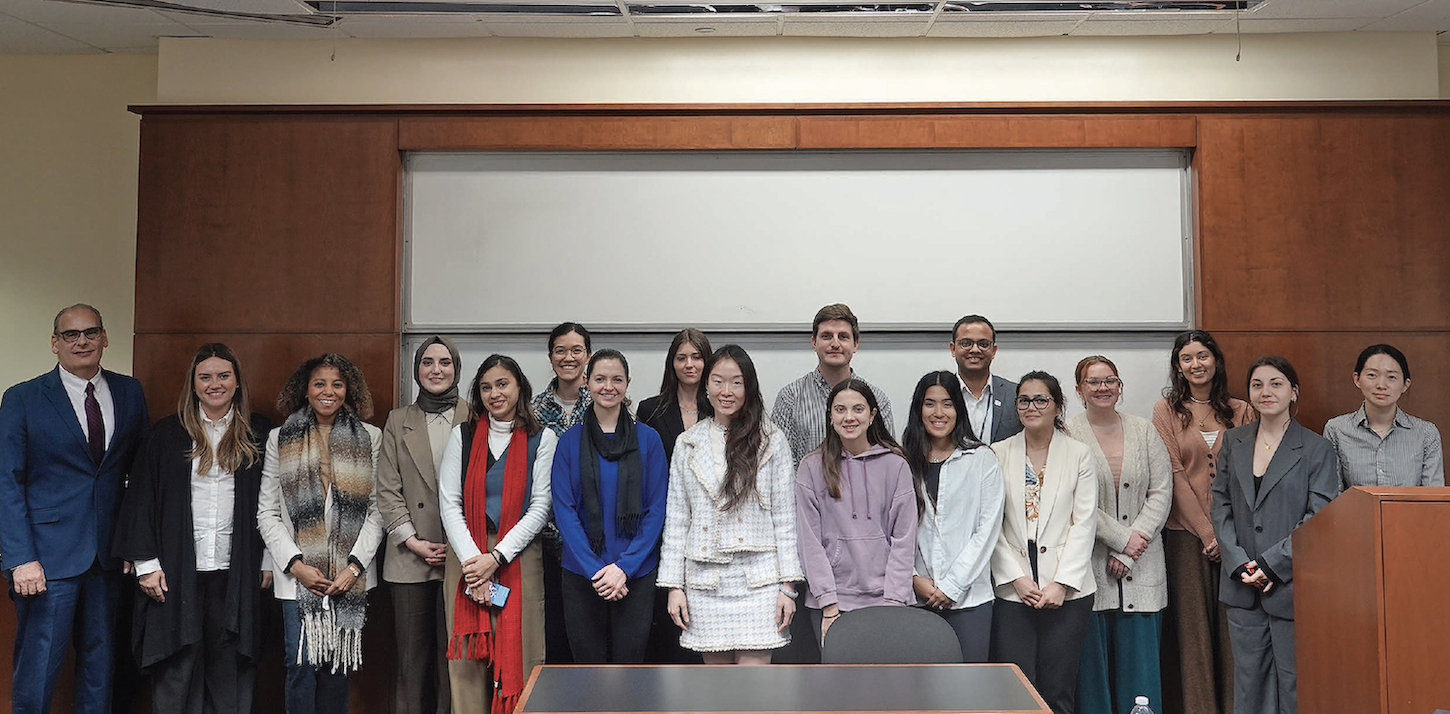
“[Dean Abate] is an incredibly supportive mentor and helped me navigate the process of getting published, including how to strategize journal submissions, providing feedback on my written work, and inspiring me to aim high with multiple papers,” Choksi said. “He also invited me to co-author a paper with him and present our findings at a symposium, which was an invaluable experience. I hope to continue contributing to legal scholarship, and I credit a lot of my success to Dean Abate’s support.”
The student publications range in topics from climate change’s impact on U.S. Air Force facilities to deep-sea mining and efforts to protect rivers and species through Rights of Nature mechanisms. Some students were able to publish papers that advanced research and scholarship that was personal to them.
Juliette Jackson, LLM ’24, published a paper about her tribal community, the Klamath Tribes, titled, “Stop Killing the Klamath: Rights of Nature Protections with the National Historic Preservation Act for a Tribe on the Front Lines of Climate Change,” which proposed an innovative legal solution to help save fish on the brink of extinction.
“My paper has been widely received by advocates and organizations in the Indigenous community in the U.S and abroad, and among environmental advocates and organizations,” Jackson said. Prior to the paper’s scheduled publication in June 2025, she presented her thesis findings to a variety of audiences, such as the GW Climate Health Institute, Women’s Earth Alliance, Bioneers Conference, Google, and at a Rights of Nature conference in Ecuador. “These opportunities allowed me to connect and grow my network and positioned me to retain future clients and job opportunities. Dean Abate made all of this possible by recruiting me for the LLM program and guiding me through the writing and publication process.”
The volume of published GW Law students is unique among law schools, Abate said. Many journals don’t allow student submissions, and it is tough competition to get published.
“Environmental law students at GW Law are getting published in law journals around the nation at an unprecedented rate that sets our program apart,” Abate said. “And the quality of the submissions is getting attention. In the 2023-24 academic year, two law journals revised their bylaws that previously prohibited consideration of student submissions to enable them to publish GW environmental law student submissions.”
GW Law is committed to providing students with an experiential education in which they make an impact on the legal field before graduating. All of Abate’s published students can say they’ve already done that.
“This level of success takes a village,” Abate said. “It starts with our remarkably talented students who learn legal research and writing skills from exceptional Fundamentals of Lawyering faculty and experienced experts on the reference librarian staff at GW Law. Those skills are enhanced when the students learn about environmental law from the outstanding full-time and part-time professors in our program.”


